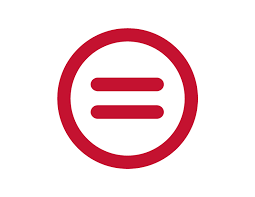More than 100 Kentuckians traveled to Frankfort today to urge legislators to reduce smoking-related cancer deaths by increasing Kentucky’s cigarette tax by $1 or more per pack. The visit was part of the American Cancer Society Cancer Action Network’s annual Day at the Capitol.
| More than 100 Kentuckians from across the Commonwealth traveled to the Capitol building in Frankfort today to urge legislators to reduce smoking-related cancer deaths by increasing Kentucky’s cigarette tax by $1 or more per pack, with similar increases on other tobacco product taxes.
The visit was part of the American Cancer Society Cancer Action Network’s (ACS CAN’s) annual Day at the Capitol. This year, the event brought together cancer patients, survivors and their families from across the state with health advocates from the Coalition for a Smoke-Free Tomorrow. As part of the rally, advocates carried and displayed photos of their loved ones who died from tobacco-related cancers. “Kentucky leads the nation in rates of cancer. This year alone, nearly 26,000 of us will hear the words ‘You have cancer’ and more than 10,000 will die from the disease,” said Pam Pilgrim, a cancer survivor and Kentucky state lead ambassador volunteer with ACS CAN. “It is no coincidence that while our state experiences more suffering, higher health costs, and more people fighting this disease, our cigarettes are among the cheapest in the nation. The good news is that we know how to win this fight.” Research shows that increasing the price of tobacco products through a significant tax increase of $1 or more results in adults quitting and prevents kids from ever starting the deadly habit. An increase of $1 per pack would prevent more than 23,000 kids from smoking, result in over 29,000 adults quitting, and save nearly 15,000 residents from premature smoking-caused death. It would also save Kentucky’s Medicaid program more than $6 million over five years and over $1 billion in long-term health care costs. In addition, $266 million in new, annual, state revenue would be generated, more than enough to provide new funding for pediatric cancer research without cutting funding for other critical cancer research and screening programs. “The bottom line is plain and simple—we need to save more lives in Kentucky and the state needs more revenue,” said Pilgrim. “A tobacco tax increase could go a long way toward solving both these problems.” In additional to Pilgrim, speakers included Dr. Jason Chesney, director of the James Graham Brown Cancer Center, Dr. Mark Evers, director of the Markey Cancer Center, Angela Criswell, senior manager of medical outreach at the Lung Cancer Alliance, and Roger Cline, an ACS CAN volunteer whose wife believed working in a smoke-filled workplace caused her death from lung cancer. About ACS CAN ACS CAN, the nonprofit, nonpartisan advocacy affiliate of the American Cancer Society, supports evidence-based policy and legislative solutions designed to eliminate cancer as a major health problem. ACS CAN works to encourage elected officials and candidates to make cancer a top national priority. ACS CAN gives ordinary people extraordinary power to fight cancer with the training and tools they need to make their voices heard. For more information, visit acscan.org. About the Coalition for a Smoke-Free Tomorrow The Coalition for a Smoke-Free Tomorrow is committed to its mission of improving Kentucky’s health by protecting Kentuckians from secondhand smoke and other tobacco emissions, and by reducing the high rate of smoking and tobacco use in the Commonwealth. For more information, please visit www.smokefreetomorrow.org. The Coalition is led by representatives of the American Cancer Society Cancer Action Network, American Heart Association, American Lung Association, Baptist Health, Campaign for Tobacco-Free Kids, Foundation for a Healthy Kentucky, Kentucky Chamber of Commerce, Kentucky Council of Churches, Kentucky Equal Justice Center, Kentucky Health Collaborative, Kentucky Health Departments Association, Kentucky Hospital Association, Kentucky Medical Association, Kentucky Nurses Association, Kentucky School Boards Association, Kentucky Voices for Health and Kentucky Youth Advocates. Other partners and members of the Coalition represent a broad array of more than 145 groups, including Kentucky business leaders, health advocates, health care providers and payers, educators, and faith community leaders. See entire list on the Coalition website. ### |
